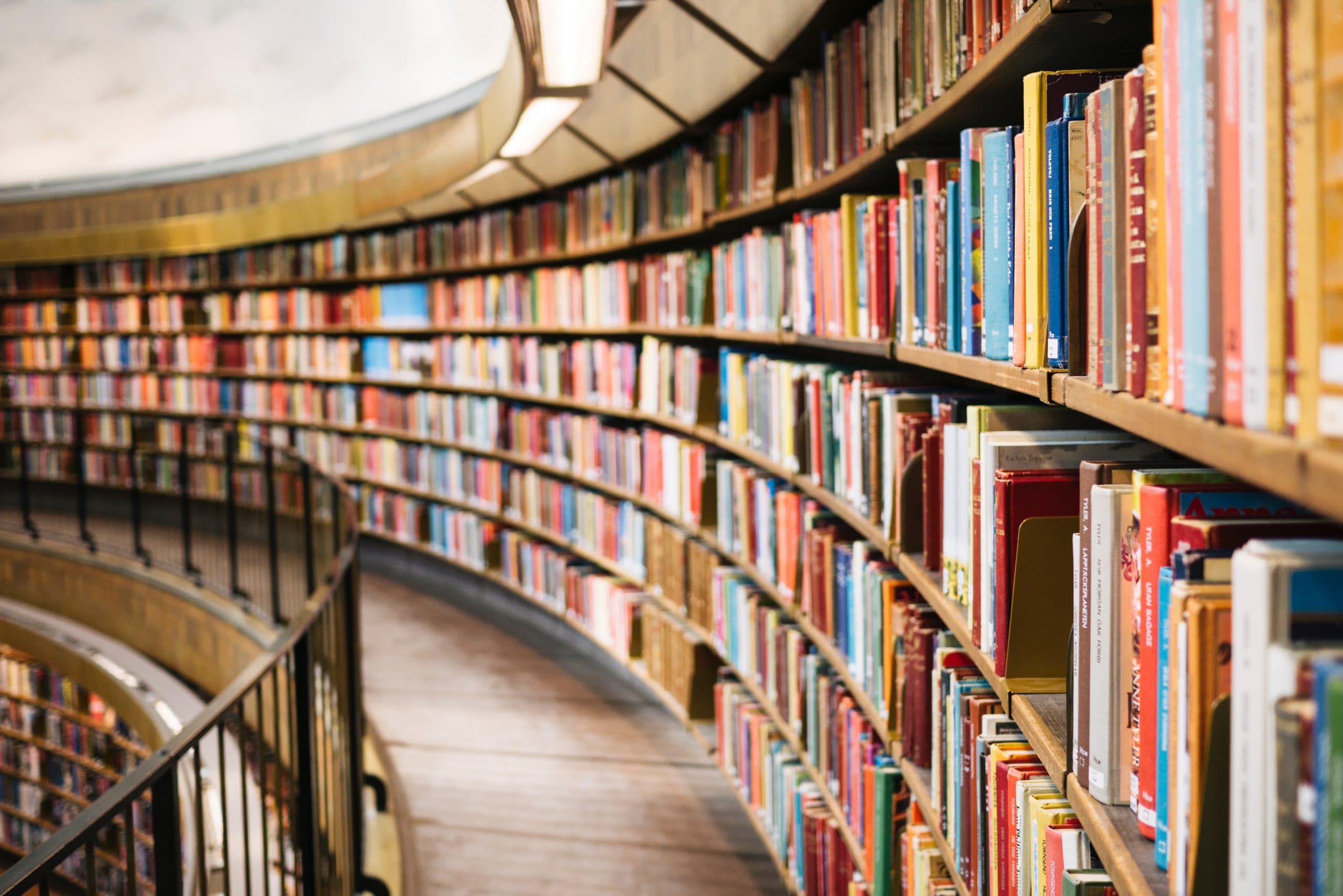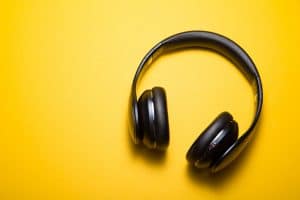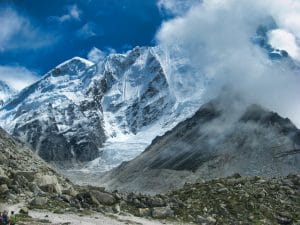Yeah, we all know that a library of leather-bound books looks impressive, but did you know you can actually read those too?
As your self-appointed guide to maturity, class, and extreme cool, I’m here to tell you that though the word “bookish” conjures up an image of a pencil-thin Poindexter pining over some unattainable co-eds or a nerdy wallflower afraid to go to the dance, that image is wrong. John Waters once said “If you go home with somebody, and they don’t have books…” Well, I don’t feel the need to finish that thought; you get the picture. You can have style and substance, folks.
In that spirit, here’s my list of ten books that should grace the bookcase of every hip, savvy Cool Dude(tte).
1. Huckleberry Finn by Mark Twain
Your true bros will go to Hell and back with you. Samuel L. Clemens’s quintessential opus about an unruly runaway and his journey down the Mississippi with an escaped slave is a metaphor for the boy’s coming-of-age and growing up (which hopefully we all make it to…one day). It’s often touted as a candidate for The Great American Novel, and understandably so. Personally, I’ve selected it because, at the end of the day, it’s a poignant story about two friends standing by each other through the thick of it. Stop for a moment and think about all the times your buds backed you up or got you “cheered up” when you were heartbroken. Try to forget the times they purposely embarrassed you or put you in harm’s way for their personal amusement.
Don’t just think of this one as that book you read in 4th grade; think of it as a guide to how a close posse keeps you afloat.
Further Reading: Pudd’nhead Wilson
2. A Good Man is Hard to Find by Flannery O’Connor
She’s the female author who knows men better than most men. O’Connor was a southern girl and a good Catholic. She may not seem the obvious candidate to write some of the most heart wrenching observations of the post-War American male, but with a few novels and a solid collection of short stories, she brought to life the grifters, outlaws, boys, and vets and the barely-repressed violence in their hearts, as if to say our true religion is the vain and unattainable pursuit of peace with self through personal gratification. Okay, we’re getting a little lofty. Trust me, though, this isn’t college coffeehouse lit; it’s a mighty fine short story collection.
The titular story is about a family on vacation encountering an escaped convict with some rather nihilistic ideas about the purpose of life. They’re all great, though. I’m partial to “The Life You Save May Be Your Own.”
Further Reading: Wise Blood
3. The Old Man and the Sea by Ernest Hemingway
Some things are worth fighting for. I could write about Papa Hemingway for days. The man whose life makes most rock stars’ lifestyles look like half measures. The man who had more real life adventures than Indiana Jones. The man who drank pretty deep from the ole cup of life. He has no shortage of great works to his credit. I chose this simple, austere tale of a fisherman’s indefatigable attempt to reel in a big catch. I’ll do the book some credit and not make this writeup too complicated. I’ll just say, “Take heed, gents. If anything is worth doing, it’s worth doing with all of yourself.”
Further Reading: For Whom the Bell Tolls
4. Day of the Locust by Nathaniel West
Down and out in L.A., Nathaniel West’s savage, acerbic page-turner about Depression-era Hollywood may be one of the lesser-known entries on this list. Aside from being the genesis of America’s most beloved rube, Homer Simpson, it is often considered to be the definitive piece of Great Depression lit (sorry, Tom Joad, we know you’ll still be there).
Tod Hackett is an Ivy Leaguer recruited by Hollywood to be a set designer for the movies. He gathers inspiration for his painting masterpiece, “The Burning of Los Angeles,” lusts after a teenage aspiring “actress,” and hangs out with a cadre of weirdo friends (hmmm, sounds suspiciously like our undergrad career). Faye becomes emblematic of the unrequited sexual desire that morphs into violence, a reminder that our better angels don’t hail from “La-La Land.” It’s a message that boys ought to hear: living behind a façade will drive you crazy.
Further Reading: Ask the Dust by John Fante
5. Factotum by Charles Bukowski
If you’ve never read Bukowski before, a majority of his best-known works follow his alter ego Henry Chinaski. This man womanizes, gambles, and hustles through dead-end jobs to make ends meet as he pursues his true love of writing. In WWII-era L.A., Chinaski—having been rejected from the draft—lives in the margins, traversing the seedier side of the City of Angels about as successful in love as he is at the meaningless jobs he takes. (The book’s title is defined as an employee who does all kinds of jobs.) It’s just like a Norman Rockwell painting.
If you’re still young, I recommend you take at least a short foray in your 20s to live on a friend’s couch, spend your sliver of a paycheck on the finer pursuits, “write,” read this book, and totally “find yourself.” Your parents won’t like it, but you’re like your own person now anyway.
Further Reading: Tropic of Cancer by Henry Miller
6. Lord of the Flies by William Golding
Why? Sucks to your reasons. This is probably the one book on the list that you had to read in school and hated, or at least thought, “How long is this guy going to prattle on about the foliage?” Its inclusion here functions as a, “Hey, maybe give it another chance, buddy.”
At the very least, it’s often considered one of the great pieces of lit from the 20th century. A group of prep school boys have their plane shot down onto a deserted tropical island, and things get a little (t)horny. The boys first set up their own little collectivist utopia, but all rapidly devolves when some of the lads go hog wild and embrace their inner savage. All in all it’s a challenging reminder that there’s often only half a step between “civilized” and “barbarian,” and their parents must have paid ever so much to send them to such a posh school.
Further Reading: 1984 by George Orwell or “The Destructors” by Graham Greene
7. All The Pretty Horses by Cormac McCarthy
We all wanted to be cowboys at one time or another. Set in 1949 Texas, the novel follows teenager John Grady Cole, who packs up and heads down into Mexico with his best friend to make his own way after the death of his beloved grandfather. He finds adventure, love, and death in equal measures.
I’ll admit the prospect of being a cowboy seemed a lot cooler and romantic until you have to think about sitting in a saddle all day (sooo much ice needed). That said, I recommend that everyone take a little inspiration from this one and set out on an “anything goes adventure” at least once in their life. Add this modern classic to your library and make sure you take some inspiration so you can secure your spot as that star at the party with all the great stories. (Falling for your boss’s daughter and getting yourself thrown into a Mexican prison is not recommended).
Further Reading: Blood Meridian
8. Catch-22 by Joseph Heller
“War is Hell.” This gonzo antiwar tome actually coined the titular phrase for when you’re damned if you do and damned if you don’t. The narrative follows the exploits of a WWII bomber squadron, particularly the protagonist, Yossarian. He takes the aim of millions of strangers trying to murder him very personally. Trapped in a vicious bureaucratic cycle in which his callous commanding officers continually increase the number of missions the men have to go on before they’re discharged, it becomes increasingly clear that the only way out may be death or insanity. Of course, if you claim you’re insane, you must actually be sane to try to get out of more missions.
Why should you read it? For starters, to remind yourself of the madness service personnel have had to endure, but also to reinforce that no man should sacrifice his ideals or personal sanity for anyone using or manipulating him.
Further Reading: Slaughterhouse Five by Kurt Vonnegut
9. The Long Goodbye by Raymond Chandler
Both the basis for a pretty terrific Robert Altman film and the masterwork in perhaps the best detective lit series, this L.A. noir mystery chronicles P.I. Philip Marlowe as he becomes entangled in dual cases involving his drinking buddy and a boozed out author. Marlowe navigates a web of deceit and corruption. The book gradually reveals an older, less self-assured, cynical (but no less tough) Marlowe that can only stand for the author’s reservoir of personal hurt and self-reflection in the latter part of his career.
Mystery paperbacks don’t necessarily stand as great literature, but this one is truly a fine piece of American writing. Why should you read it? Aside from most kids wanting to live a stint as a hard-boiled detective (but only if you can live on a houseboat), we grownups should conduct our personal and professional lives in accordance with our principles.
Further Reading: Dog Soldiers by Robert Stone
10. The Rum Diary by Dr. Hunter S. Thompson
Not an advertisement for Bacardi, this is an early work of the great Hunter S. Thompson that was lost for many years until it was finally released in the late 1990s. It’s based on the author’s account of his travels from NYC to Puerto Rico in the 1950s to work for a rag newspaper. Written by a youthful pre-gonzo Thompson in his early 20s, and loosely based on his own personal experiences as filtered through the eyes of his protagonist Paul Kemp, it opens up a world that’s equal parts untamed beauty and corrupt exploitation, with a steady diet of the titular liquor and the occasional hallucinogen. You can see the infamous writer forming into the counterculture icon he would become.
Any of the Doctor’s works would be handsome additions to your personal library, but I recommend this one because it will infuse you with a spirit of wanderlust and rebellion. (Please imbibe responsibly.)
Further Reading: Fear and Loathing in Las Vegas
(Editor’s note: This list first appeared on a blog aimed at male readers, so features works primarily centered around male characters. Any related implications are unintentional.)
Reality Changing Observations:
1. What books, particularly works of fiction, have most impacted the way you see the world? How old were you when you read them?
2. What keeps you from reading more? Is this something you’d want to change?
3. How could reading more shift your personal priorities and lifestyle?






